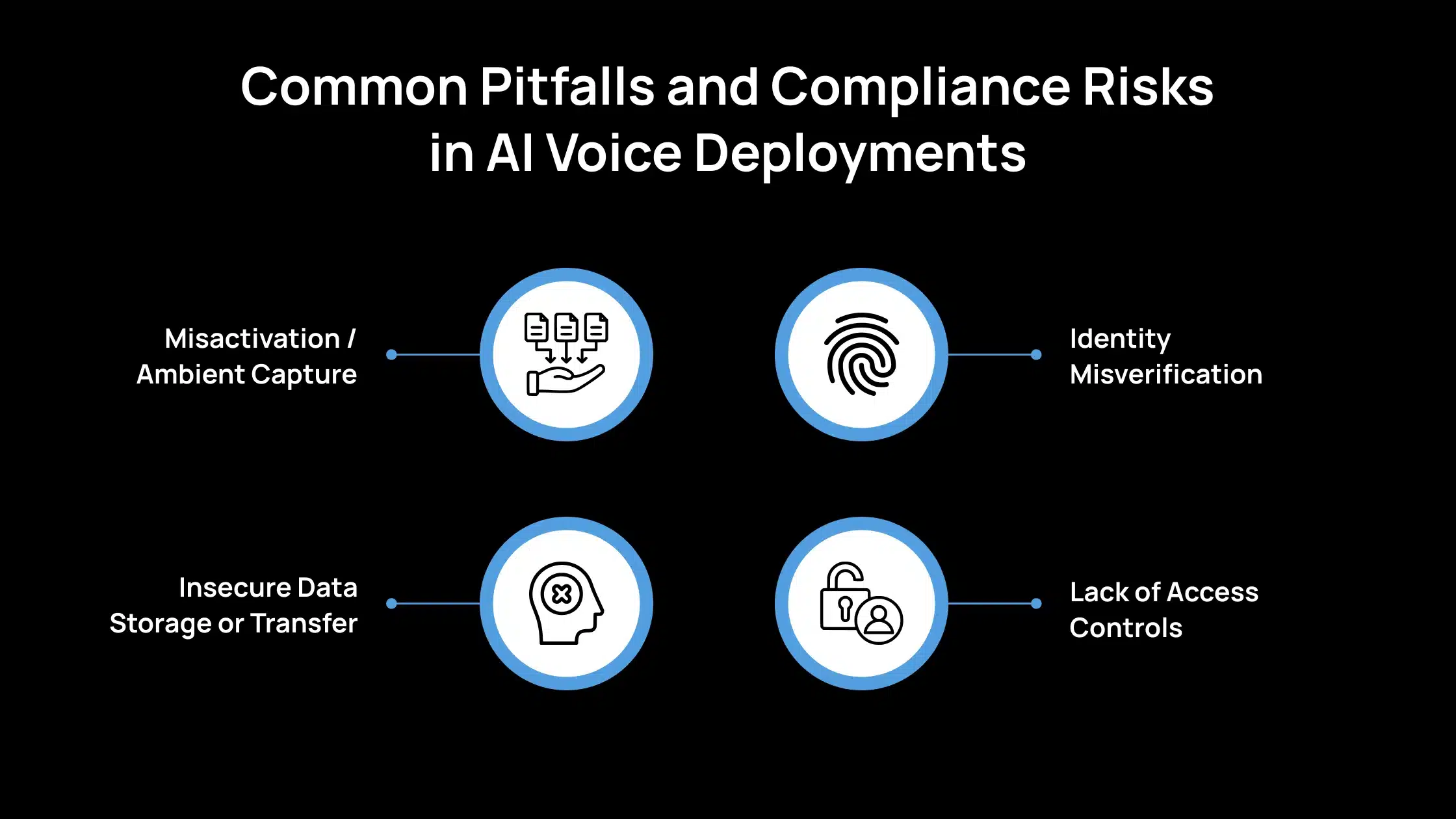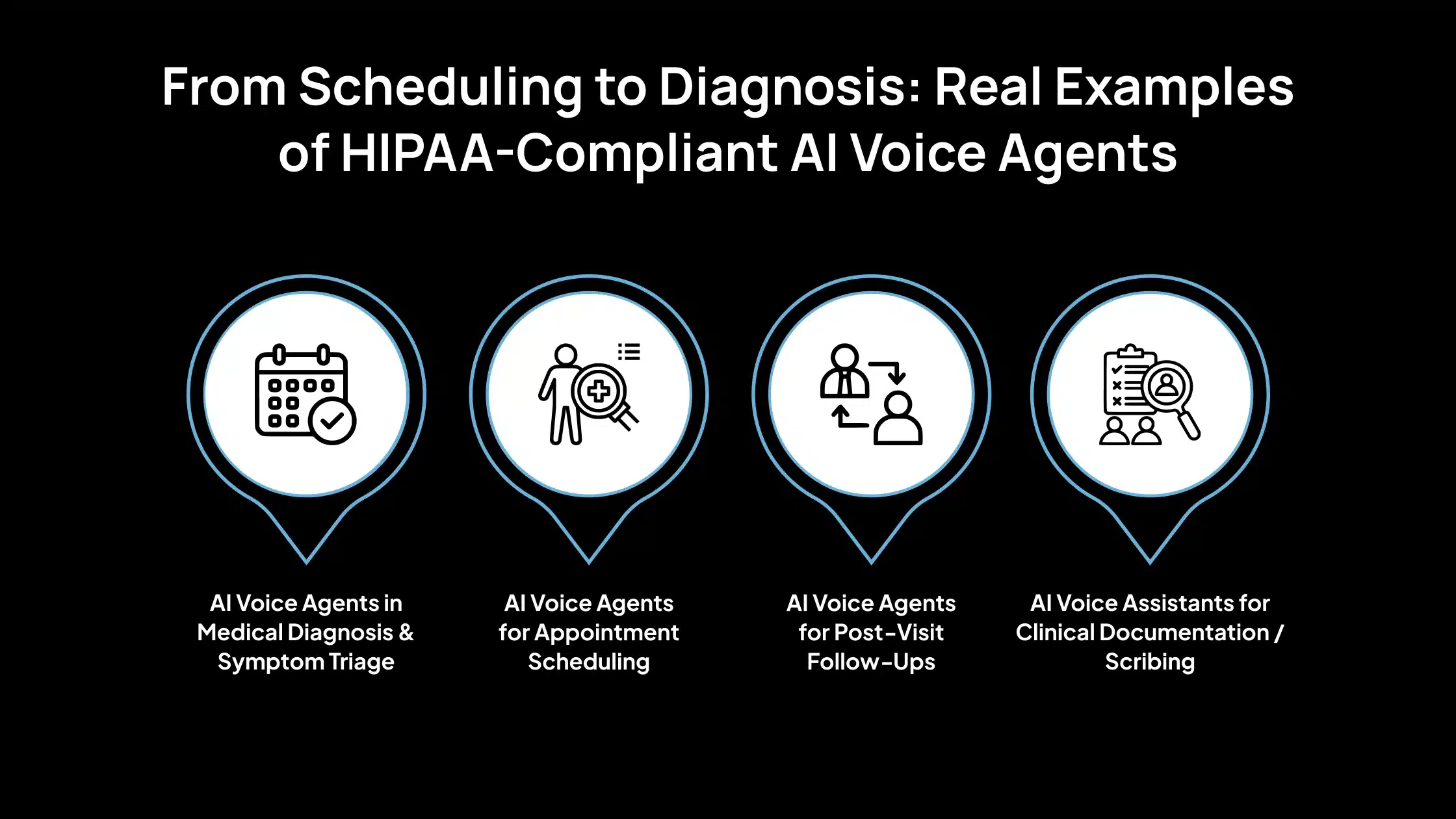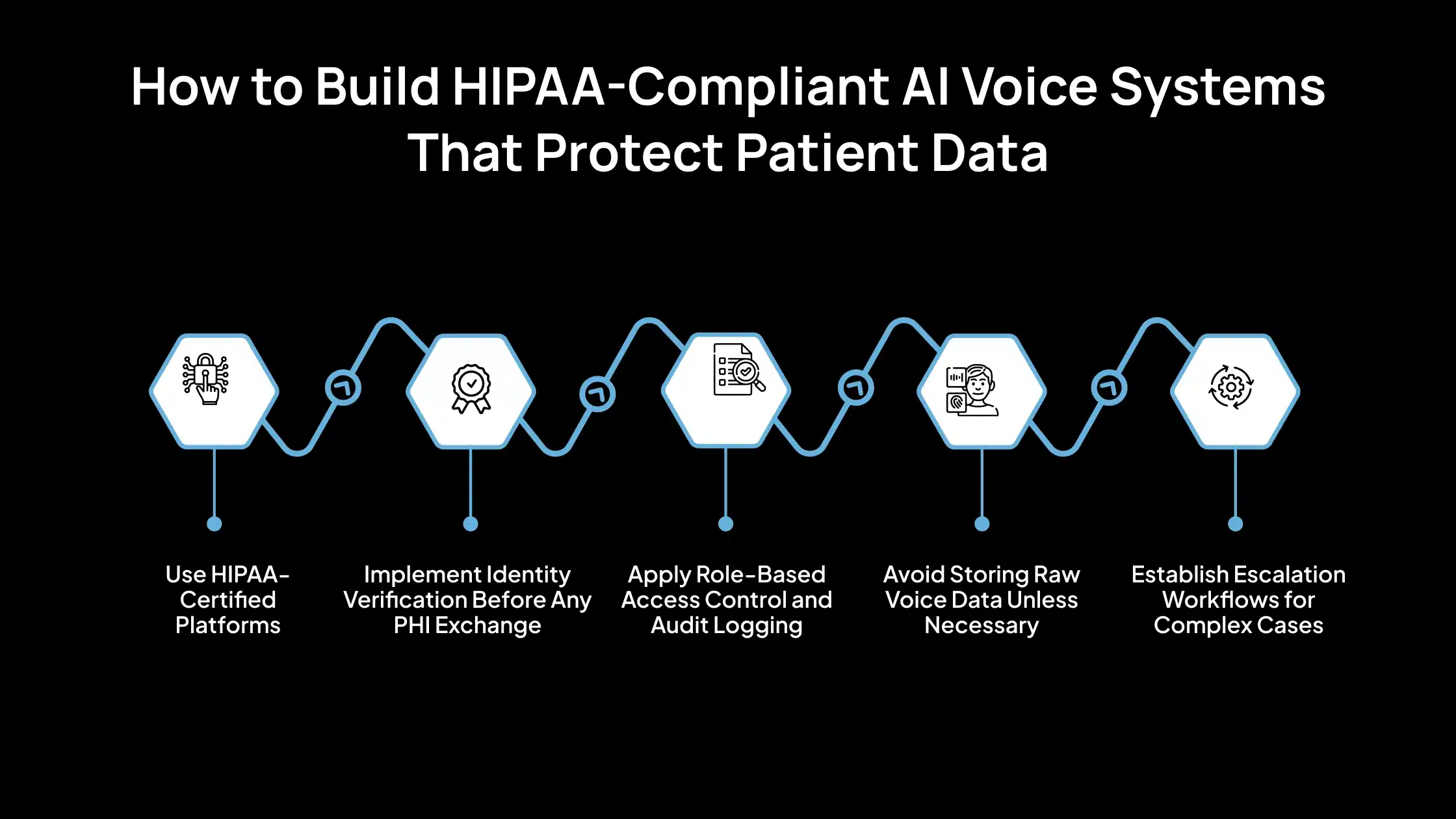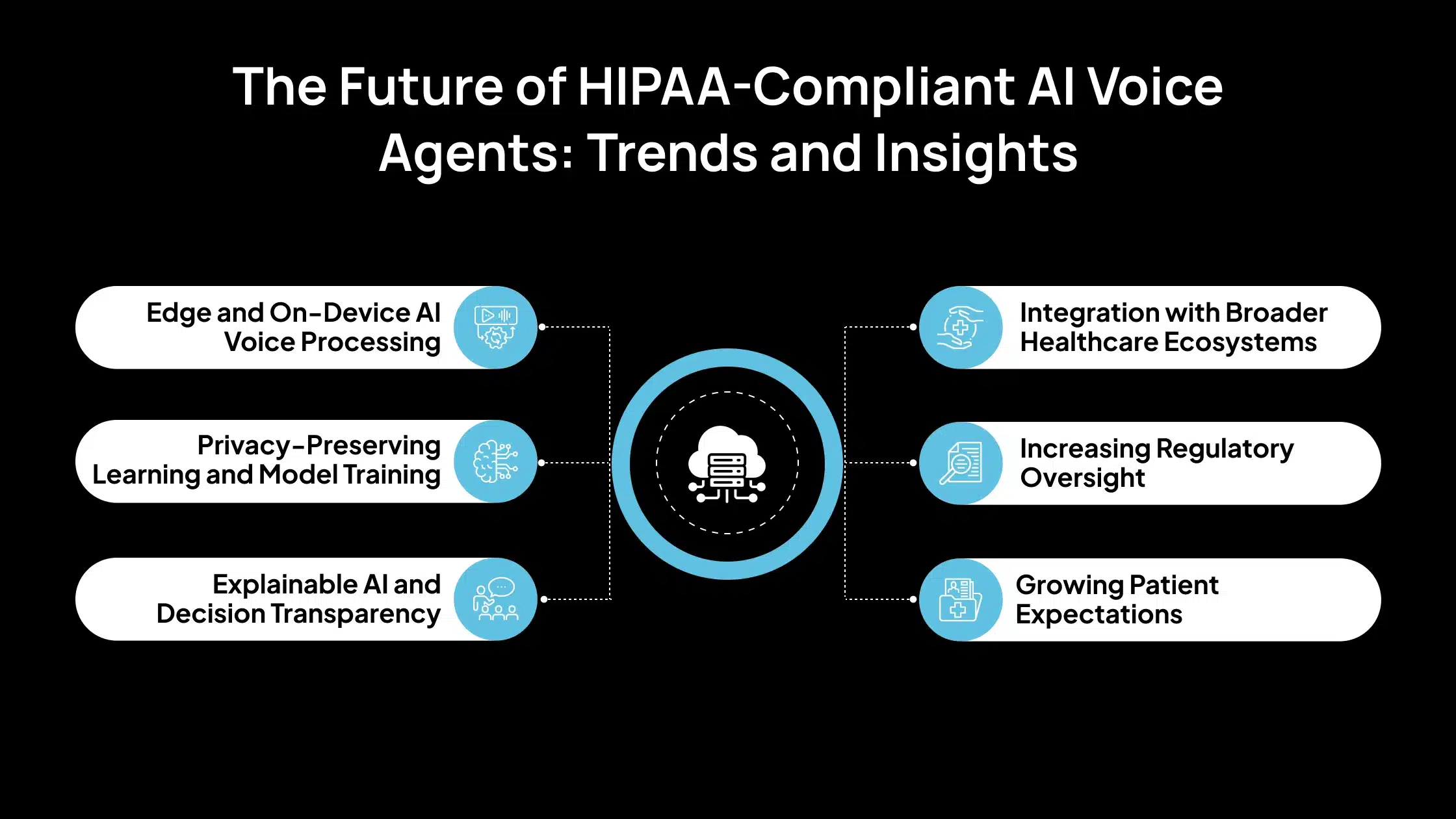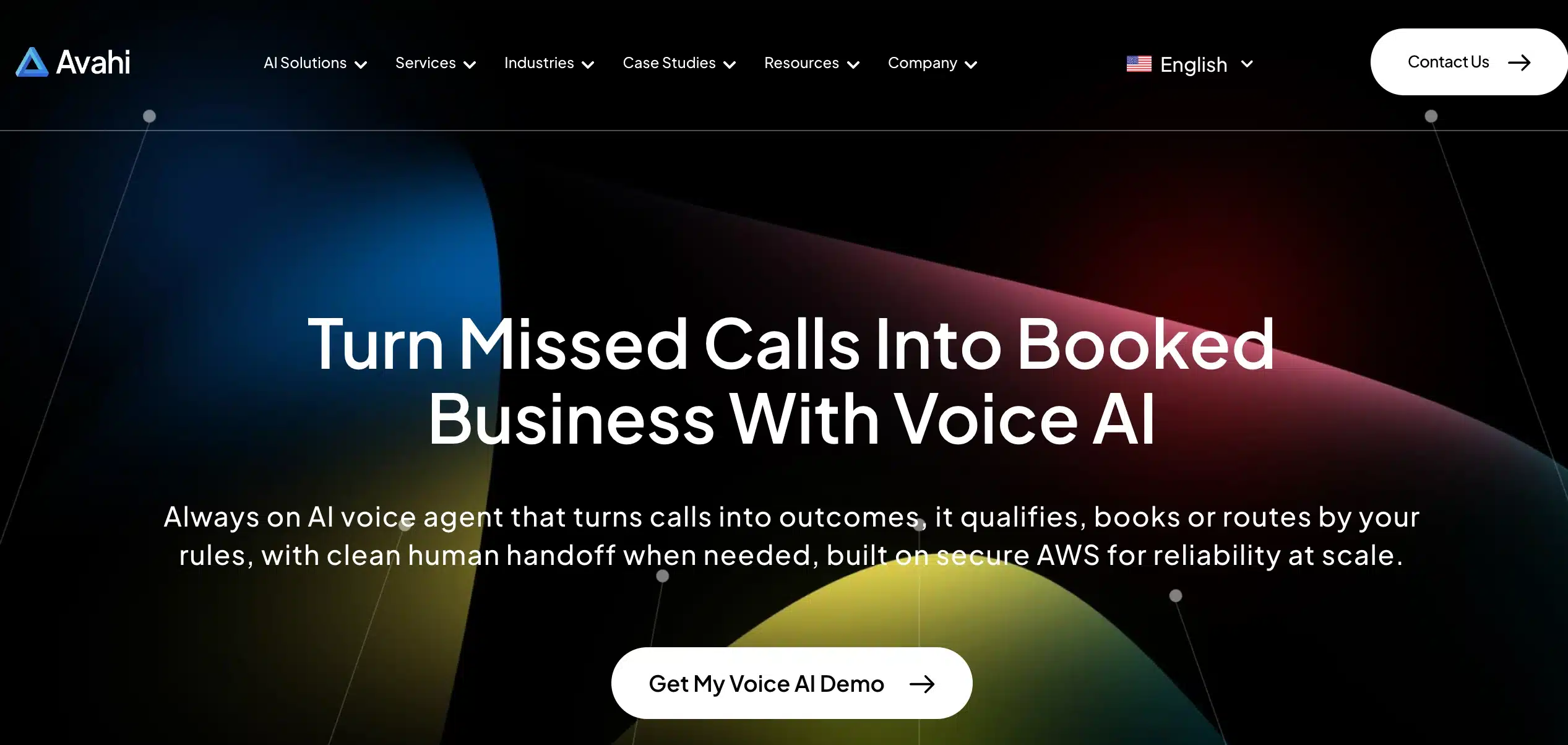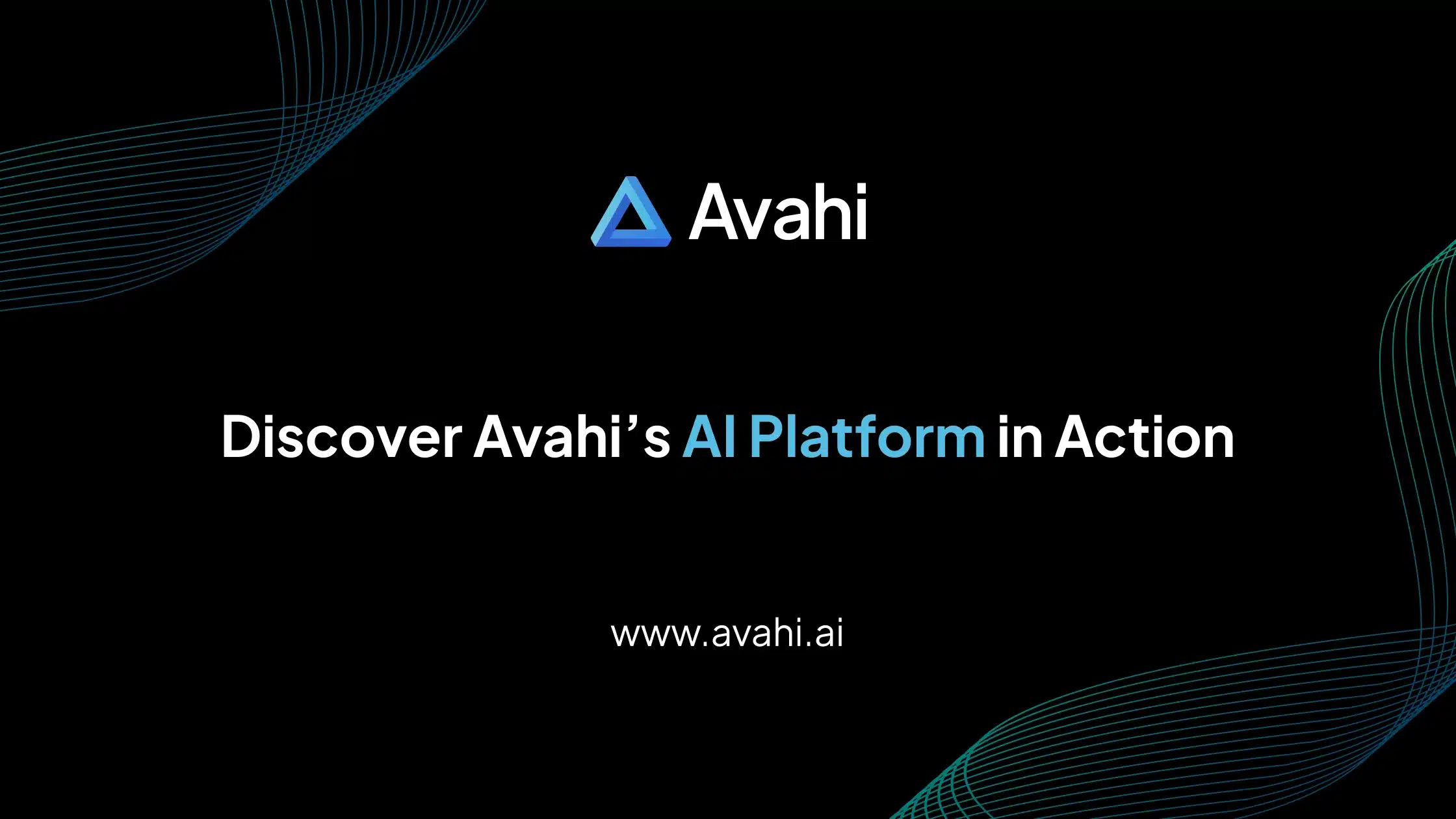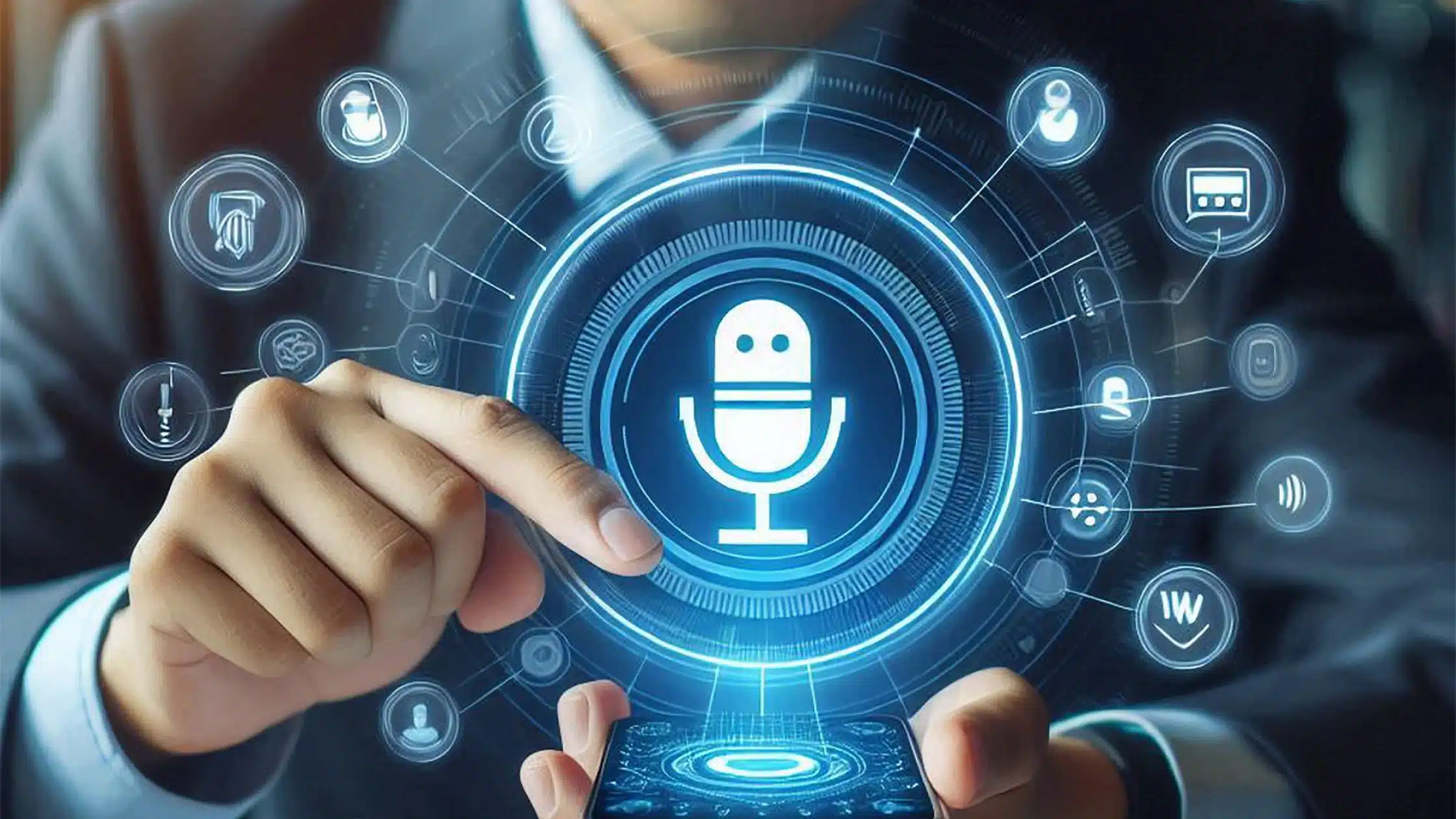Voice is rapidly becoming the new interface of healthcare, faster, more natural, and always available. But as AI voice agents begin to engage directly with patients, they aren’t just answering questions or setting appointments. They’re handling protected health information (PHI), and that brings HIPAA compliance into sharp focus.
In recent years, the healthcare industry has seen a significant shift toward automation and AI-driven communication. AI voice agents are now being used for everything from symptom triage and appointment scheduling to post-visit follow-ups and clinical documentation. The promise is clear: reduced administrative burden, improved patient experience, and increased operational efficiency.
According to Gartner, 80% of healthcare providers will invest in conversational AI technologies by 2026. But alongside this momentum lies a growing risk. In 2024, more than 276 million healthcare records were reported exposed, stolen, or impermissibly disclosed, a 64.1% increase over 2023. Unlike other forms of automation, AI voice agents operate in real-time, interpret spoken input, and often integrate directly with backend systems such as EHRs or pharmacy platforms.
This blog explores what it takes to deploy AI voice agents in healthcare while staying fully compliant with HIPAA. We’ll walk through real-world HIPAA-compliant AI voice agent examples, outline the legal requirements involved, identify common risks, and provide clear strategies for building secure, trustworthy systems.
TL;DR
|
HIPAA Compliant AI Voice Agents: What You Must Know
Any recorded audio of a patient discussing their health, symptoms, or treatments is considered Protected Health Information (PHI). If the recording includes identifiers such as name, date of birth, or phone number, it falls under HIPAA protection.
Text transcripts generated from voice interactions are also PHI when they contain health-related information linked to an individual. Metadata such as call timestamps, voice assistant IDs, or caller location can qualify as PHI when combined with medical details or identifiers.
Essential HIPAA Rules Involved in HIPPA Compliant AI Voice Agents
1. Privacy Rule
This rule regulates how PHI can be used and disclosed. For AI voice agents, this means ensuring that patient information is used only for treatment, billing, or healthcare operations, unless explicit consent is given.
2. Security Rule
The Security Rule requires administrative, physical, and technical safeguards to protect electronic PHI (ePHI). Voice data, including stored audio files and transcripts, must be encrypted and protected from unauthorized access.
3. Breach Notification Rule
If PHI is exposed through unauthorized access, a breach must be reported to affected individuals, the Department of Health and Human Services (HHS), and in some cases, the media. Voice systems must be able to detect and log such breaches.
4. Business Associate Agreement (BAA)
Any vendor or third-party handling PHI on behalf of a covered entity (e.g., cloud providers, AI vendors) must sign a BAA. This ensures shared responsibility for HIPAA compliance, including data protection and breach handling.
Common Pitfalls and Compliance Risks in AI Voice Deployments
While AI voice agents bring efficiency and convenience to healthcare, they also introduce unique privacy, security, and compliance risks that must be addressed proactively to ensure patient safety and HIPAA adherence.
1. Misactivation / Ambient Capture
Voice agents may mistakenly activate and begin recording due to similar-sounding words. This can lead to capturing unintended conversations containing PHI, violating the principle of minimum necessary data collection.
2. Identity Misverification
If the system fails to confirm the identity of the speaker properly, PHI may be disclosed to unauthorized individuals. This can occur in shared households or public environments without adequate authentication steps.
3. Insecure Data Storage or Transfer
If voice recordings or transcripts are stored without encryption or transmitted over unsecured networks, they are vulnerable to interception or unauthorized access. This directly violates HIPAA’s Security Rule.
4. Lack of Access Controls
Without strict role-based access control, unauthorized personnel may access sensitive patient data processed by the AI system. This can result in internal data breaches and audit failures.
From Scheduling to Diagnosis: Real Examples of HIPAA-Compliant AI Voice Agents
In this section, each subcase highlights HIPAA-compliant AI voice agent examples, showcasing real or research-based deployments across healthcare.
1. AI Voice Agents in Medical Diagnosis & Symptom Triage
VOICE (Voice‐guided Orchestrated Intelligence for Clinical Evaluation): A voice AI system built for prehospital stroke assessment. It guides users (e.g., paramedics or family members) through spoken symptom assessment, captures audio and related inputs, and supports expert review.
CLARITY (Clinical Assistant for Routing, Inference, and Triage): A hybrid conversational AI system combining structured dialogue flows and LLM inference, used across hospitals for routing, inference, and triage decisions. arXiv
Voice‑based Triage for Type 2 Diabetes : A virtual assistant that extracts acoustic features to help pre‑screen for diabetes status via voice in a home setting.
Incorrect triage decisions by AI voice agents can delay critical care, leading to potential patient harm through false negatives or false positives. Additionally, voice-based interactions pose privacy risks such as PHI leakage, where spoken symptoms or patient identifiers may be inadvertently recorded or stored insecurely.
Another concern is system overreach, when an agent moves beyond its intended clinical scope and provides inappropriate or unsafe advice. These challenges underline the importance of designing AI triage systems that prioritize safety, accuracy, and strict data handling protocols.
To ensure compliance and patient protection, HIPAA-compliant AI voice agents must incorporate strong safeguards. This includes restricting the agent’s domain to specific, well-defined medical flows and rejecting off-topic or ambiguous queries.
2. AI Voice Agents for Appointment Scheduling
ScienceSoft’s HIPAA‑compliant AI voice scheduler automates booking, rescheduling, and cancellations via conversational voice interaction. The system integrates with hospital or clinic scheduling systems in real time using FHIR‑based APIs.
The voice agent answers inbound calls or makes outbound calls to schedule, reschedule, or cancel patient appointments. During the call, it checks physician availability, confirms with calendar systems, and updates appointments on the fly.
To maintain compliance, the AI voice scheduling system is hosted in a HIPAA-compliant cloud environment such as Amazon VPC, ensuring data protection through strict security safeguards. Before making or modifying appointments, the agent performs identity verification using challenge questions, escalating to staff if verification fails.
The solution operates under Business Associate Agreements (BAAs) with all cloud and AI vendors, ensuring shared responsibility for compliance. All communications, logs, and internal data transfers are encrypted, and role-based access controls restrict who can view or modify scheduling information.
3. AI Voice Agents for Post‑Visit Follow‑Ups
Voice AI agents used to send reminders or conduct check-ins (medication adherence, symptom tracking) via voice calls. For instance, voice platforms advertise “post‑care follow-up” modules.
Some custom deployments for automated reminder calls in outpatient settings. (Less documented in public literature.)
To ensure compliance, the AI voice follow-up system begins by obtaining explicit patient consent before making any calls that reference personal health conditions or medications. Patients are given a clear opt-out option to decline future reminders, ensuring respect for privacy preferences.
The system enforces data retention limits, storing voice logs only for the necessary period before securely deleting or archiving them in line with HIPAA requirements. All outbound messages are designed with minimal PHI content, avoiding sensitive details unless the patient’s identity has been verified. Additionally, strong encryption and access controls protect stored logs, transcripts, and metadata from unauthorized access.
Respect patient preferences (opt-out) and privacy, don’t collect more data than needed. Use a careful design so reminders are generic or masked unless identity is reconfirmed.
4. AI Voice Assistants for Clinical Documentation / Scribing
AWS HealthScribe: Amazon’s HIPAA‑eligible generative AI transcribes doctor–patient conversations and produces summaries and draft notes. Investopedia Voice-enabled clinical documentation assistants from vendors like Nuance,or Suki, (these combine voice recognition and AI summarization) are used in clinical settings.
AI-generated clinical documentation carries risks such as transcription errors that could lead to inaccurate medical records, unintentional inclusion of sensitive PHI, and potential data leaks if notes are stored insecurely or accessed by unauthorized users. To mitigate these risks, the system must operate on a secure infrastructure, either on-premises or within a HIPAA-compliant cloud, with strong encryption and access controls.
Never commit AI-generated documentation to EHR automatically; always subject to human oversight. Limit which parts of the draft can be auto‑inserted; some sections may require manual editing. Use strong security controls around draft storage, especially during the review phase.
How to Build HIPAA-Compliant AI Voice Systems That Protect Patient Data
To ensure that AI voice agents in healthcare operate within HIPAA guidelines, system design must incorporate security, privacy, and regulatory compliance from the start. The following practices form the foundation of a HIPAA-compliant voice AI architecture.
1. Use HIPAA-Certified Platforms
Deploy AI voice systems only on infrastructure that offers HIPAA compliance features and is willing to sign a Business Associate Agreement (BAA).
Cloud providers such as AWS, Microsoft Azure, and Google Cloud Platform (GCP) offer HIPAA-eligible services. These platforms include built-in encryption, access management, and auditing tools required under the HIPAA Security Rule. Before deployment, ensure the provider signs a BAA and that all services used fall under their HIPAA-compliant scope.
2. Implement Identity Verification Before Any PHI Exchange
Confirm the identity of users before accessing or sharing Protected Health Information (PHI). Voice agents must not disclose or act on PHI unless the caller’s identity is verified.
This can be done using challenge questions, PINs, multi-factor authentication, or voice biometrics (if proven reliable). Without identity verification, there’s a risk of unauthorized PHI exposure, which would be a HIPAA violation.
3. Apply Role-Based Access Control and Audit Logging
Limit access to PHI based on user roles and maintain detailed logs of all data interactions. Not every system component or user should have equal access to PHI.
Implement Role-Based Access Control (RBAC) so that only authorized personnel or system modules can handle specific data. Additionally, enable audit logging to track who accessed what data, when, and why. These logs are critical for compliance audits and breach investigations.
4. Avoid Storing Raw Voice Data Unless Necessary
Minimize the storage of original voice recordings unless there’s a clear operational or clinical need. Storing raw voice data increases the risk surface. If transcription or processing can be done in real time, it’s best to avoid storing the audio.
If storage is necessary (e.g., for review or training), ensure it’s encrypted, access-controlled, and retained only for the legally required period. Also, inform users that the recording is taking place.
5. Establish Escalation Workflows for Complex Cases
Design workflows that transfer complex or uncertain interactions from AI to human agents.
AI voice agents may not always be able to understand medical nuances or ambiguous requests.
In such cases, the system should automatically escalate to a live human agent or healthcare provider. This ensures safety, avoids errors, and maintains compliance by preventing unauthorized or incorrect PHI processing.
The Future of HIPAA-Compliant AI Voice Agents: Trends and Insights
AI voice agents are rapidly evolving, and their role in healthcare is expected to expand. However, as adoption increases, so do expectations around compliance, accuracy, and trust. Below are the trends that will shape the future of HIPAA-compliant AI voice systems.
1. Edge and On-Device AI Voice Processing
To reduce the risk of PHI exposure, healthcare organizations are moving toward processing voice data locally, on the device, rather than sending it to cloud servers. This approach, known as edge computing, minimizes data transfer, enhances privacy, and reduces latency. It also supports offline functionality in clinical environments with limited connectivity.
2. Privacy-Preserving Learning and Model Training
Federated learning and differential privacy are gaining attention as methods to train AI models without centralizing sensitive patient data. These techniques allow voice agents to learn from user interactions while keeping the raw data on the user’s device. This reduces the risk of PHI leakage and aligns more closely with HIPAA’s data minimization principles.
3. Explainable AI and Decision Transparency
As AI systems become more complex, healthcare providers and regulators are demanding more precise explanations for how decisions are made. Explainable AI (XAI) tools help trace why a voice agent made a specific recommendation or response. This is especially important in clinical workflows, where accountability and trust are critical.
4. Integration with Broader Healthcare Ecosystems
Future AI voice agents will not operate in isolation. They will be integrated with Electronic Health Record (EHR) systems, telehealth platforms, remote patient monitoring tools, and clinical decision support systems. Seamless integration will improve workflow efficiency and data consistency, while also increasing the risk surface—making secure APIs and governance frameworks essential.
5. Increasing Regulatory Oversight
Regulatory bodies such as the U.S. Department of Health and Human Services (HHS) and the Office for Civil Rights (OCR) are expected to introduce more detailed guidance around the use of AI in healthcare. This includes requirements for transparency, fairness, and algorithmic accountability. Organizations deploying voice agents must be prepared for audits, documentation requirements, and compliance checks.
6. Growing Patient Expectations
Patients are becoming more aware of how their data is used and expect transparency, control, and respectful interactions. Voice agents must deliver accurate, empathetic, and privacy-conscious communication. Meeting these expectations will be just as important as meeting technical or regulatory standards.
Avahi AI Voice Agent: A HIPAA-Compliant Solution for Smarter Healthcare Communication
In healthcare, time and responsiveness are critical. Every missed call could mean a missed appointment, delayed treatment, or even a loss of patient trust. TheAvahi AI Voice Agent addresses these challenges head-on by ensuring that no patient call goes unanswered, whether it’s after hours, on weekends, or during peak call times, all while maintaining full HIPAA compliance.
Built on secure AWS infrastructure, the Avahi AI Voice Agent is designed specifically for healthcare providers who need reliability, data protection, and patient-centered communication. Its architecture ensures end-to-end encryption, access control, and comprehensive audit trails, meeting the technical safeguards outlined under the HIPAA Security Rule. This foundation allows organizations to confidently automate patient interactions without compromising on compliance or data privacy.
The system functions as a 24/7 virtual front desk, managing a variety of patient interactions:
- Scheduling, confirming, or rescheduling appointments
- Verifying patient information before sharing sensitive data
- Routing calls intelligently to the correct department
- Escalating complex cases seamlessly to live staff
By doing so, the Avahi AI Voice Agent not only reduces administrative strain but also ensures consistent, compliant communication across all patient touchpoints.
The Avahi AI Voice Agent stands as a prime example of how technology can modernize healthcare communication while staying compliant with HIPAA. It bridges the gap between automation and patient empathy, delivering operational efficiency, stronger compliance assurance, and a better overall patient experience.
Discover Avahi’s AI Platform in Action
At Avahi, we empower businesses to deploy advanced Generative AI that streamlines operations, enhances decision-making, and accelerates innovation—all with zero complexity.
As your trusted AWS Cloud Consulting Partner, we empower organizations to harness the full potential of AI while ensuring security, scalability, and compliance with industry-leading cloud solutions.
Our AI Solutions Include
- AI Adoption & Integration – Utilize Amazon Bedrock and GenAI to Enhance Automation and Decision-Making.
- Custom AI Development – Build intelligent applications tailored to your business needs.
- AI Model Optimization – Seamlessly switch between AI models with automated cost, accuracy, and performance comparisons.
- AI Automation – Automate repetitive tasks and free up time for strategic growth.
- Advanced Security & AI Governance – Ensure compliance, detect fraud, and deploy secure models.
Want to unlock the power of AI with enterprise-grade security and efficiency? Start Your AI Transformation with Avahi Today!
Frequently Asked Questions
1. What makes an AI voice agent HIPAA-compliant?
A HIPAA-compliant AI voice agent must implement technical and administrative safeguards such as encryption, access control, identity verification, and audit logging to protect patient data during processing, storage, and transmission.
2. Can AI voice agents be used for clinical workflows like diagnosis or documentation?
Yes, AI voice agents are increasingly used to assist in clinical documentation, symptom triage, and care coordination. However, they must operate within clearly defined scopes and always include human oversight for clinical accuracy and safety.
3. What are the risks of using AI voice agents in healthcare settings?
Risks include unauthorized access to PHI, inaccurate responses, model hallucinations, and insecure data storage. These can be mitigated with strong authentication, limited use cases, and fallback protocols to human agents.
4. Are there real-world HIPAA-compliant AI voice agent examples available?
Yes, providers like ScienceSoft and AWS HealthScribe offer HIPAA-compliant AI voice agent solutions for tasks such as appointment scheduling and clinical note generation, demonstrating secure and practical applications in healthcare.
5. How can healthcare organizations start implementing AI voice agents safely?
Begin with low-risk use cases like appointment reminders or intake automation, use HIPAA-eligible infrastructure, and work with vendors who understand compliance requirements to ensure a secure rollout.

